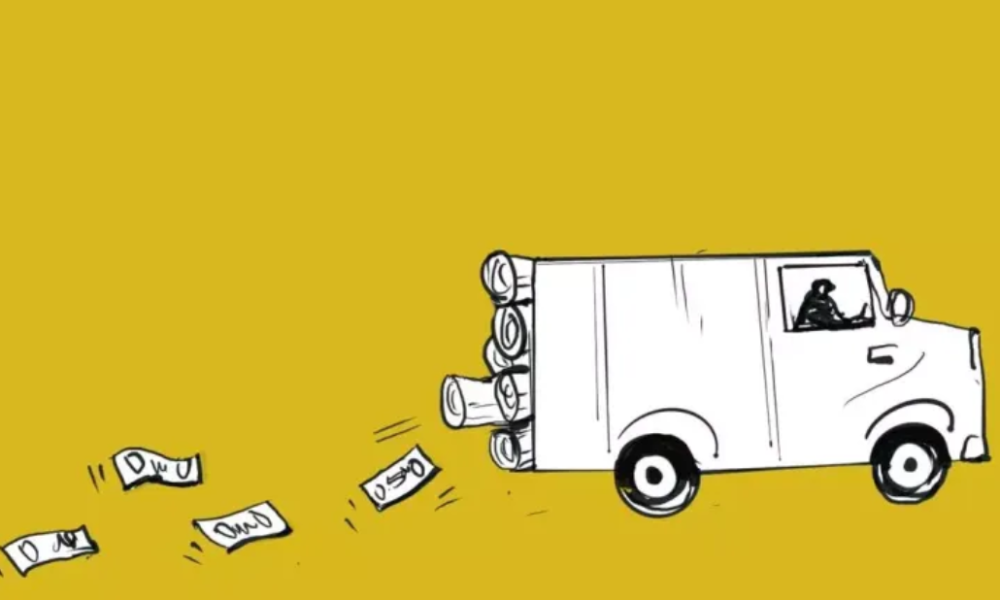SPECIAL REPORTS AND PROJECTS
How Carbon Markets are Exploiting Marginalised Communities in the Global South Instead of Uplifting them
Published
1 year agoon
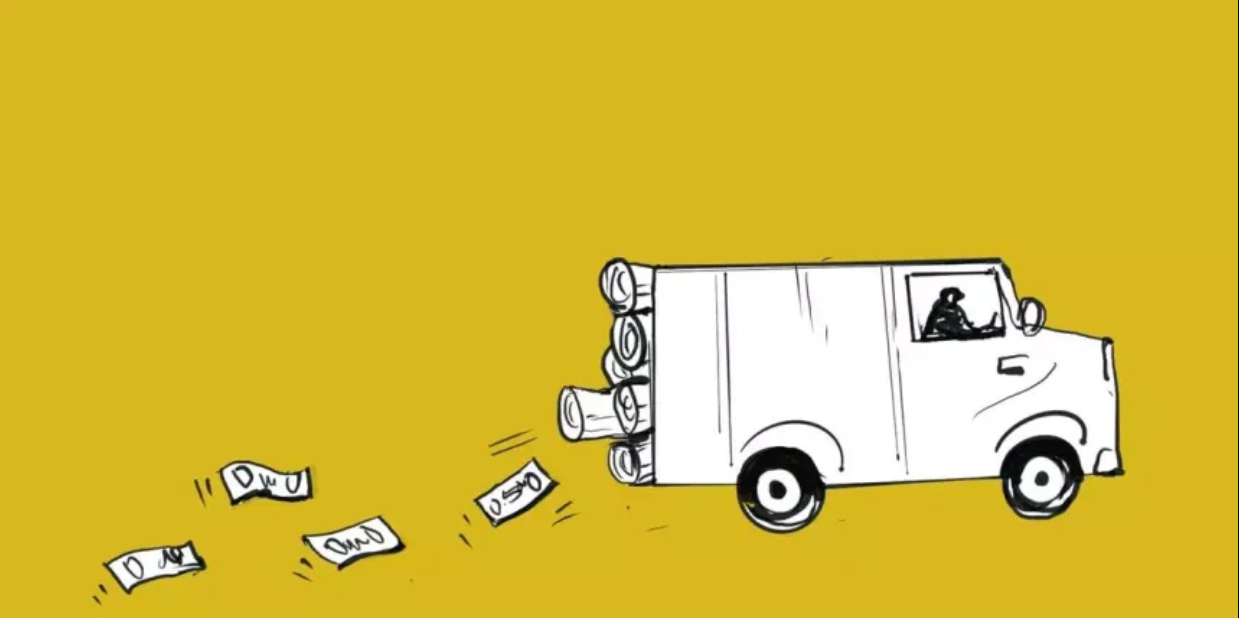
The billion-dollar fiction of carbon offsets
Carbon markets are turning indigenous farming practices into corporate profit, leaving communities empty-handed.
For Janni Mithula, 42, a resident of the Thotavalasa village in Andhra Pradesh, cultivating the rich, red soil of the valley was her livelihood. On her small patch of land grow with coffee and mango trees, planted over decades with tireless care and ancestral knowledge. Yet, once a source of pride and sustainability, the meaning of these trees has been quietly redefined in ways she never agreed to.
Over a decade ago, more than 333 villages in the valley began receiving free saplings from the Naandi Foundation as part of a large-scale afforestation initiative funded by a French entity, Livelihoods Funds. Unbeknownst to Janni and her neighbours, these trees had transfigured into commodities in a global carbon market, their branches reaching far beyond the valley to corporate boardrooms, their roots tethered not to the soil of sustenance but to the ledger of profit and carbon offsets.
The project claims that it would offset nearly 1.6 million tonnes of carbon dioxide equivalent over two decades. On paper, it is a triumph for global climate efforts. In reality, the residents’ lives have seen little improvement. While the sale of carbon credits has reportedly fetched millions of dollars for developers, Janni’s rewards have been minimal: a few saplings, occasional training sessions, and the obligation to care for trees that she no longer fully owns. These invisible transactions pose a grave risk to marginalised communities, who practice sustainable agriculture out of necessity rather than trend.
Also Read | COP29: The $300 billion climate finance deal is an optical illusion
The very systems that could uplift them—carbon markets intended to fund sustainability—end up exploiting their resources without addressing their needs.
Earlier this year, the Centre for Science and Environment (CSE) and Down To Earth (DTE) released a joint investigative report on the functioning of the voluntary carbon market in India. The report critically analysed the impacts of the new-age climate solution, its efficacy in reducing carbon emissions, and how it affected the communities involved in the schemes.
The findings highlighted systemic opacity, with key details about the projects, prices, and beneficiaries concealed under confidentiality clauses. Developers also tended to overestimate their emission reductions while failing to provide local communities with meaningful compensation. The report stated that the main beneficiaries of these projects were the project developers, auditors and companies that make a profit out of the carbon trading system.
Carbon markets: The evolution
On December 11, 1997, the parties to the United Nations Framework Convention on Climate Change (UNFCC) convened and adopted the Kyoto Protocol with the exigence of the climate crisis bearing down on the world. The Kyoto Protocol, revered for its epochal impact on global climate policy, focused on controlling the emissions of prime anthropogenic greenhouse gases (GHGs). One of the key mechanisms introduced was the “Clean Development Mechanism”, which would allow developed countries to invest in emission reduction projects in developing countries. In exchange, the developed countries would receive certified emission reduction (CER) credits, or carbon credits as they are commonly known.
One carbon credit represents the reduction or removal of one tonne of CO2. Governments create and enforce rules for carbon markets by setting emission caps and monitoring compliance with the help of third-party organisations. For example, the European Union Emissions Trading System (EU-ETS) sets an overall cap on emissions and allocates allowances to industries. A financial penalty system was also put in place to prevent verifiers and consultants from falsifying emissions data. The impact of these renewable projects is usually verified through methods such as satellite imagery or on-site audits.
Companies such as Verra and Gold Standard have seized this opportunity, leading the designing and monitoring of carbon removal projects. Governments and corporations invest in these projects to meet their own net-zero pledges. The companies then issue carbon credits to the investing entity. Verra has stated that they have issued over 1 billion carbon credits, translating into the reduction of 1 billion tonnes of greenhouse gas emissions. However, countless case studies and reports have indicated that only a small fraction of these funds reach the local communities practising sustainability.
Article 6 under the Paris Agreement further concretised and regulated the crediting mechanism to enable countries interested in setting up carbon trading schemes. However, the parties failed to reach a consensus regarding the specifics of Article 6 at COP 27 and COP 28. So, climate finance experts and policymakers were very interested in the developments taking place at the COP 29 summit in Baku, Azerbaijan. Unlike its predecessors, the COP 29 summit has seen a diminished attendee list, with major Western political leaders including Joe Biden, Ursula von der Leyen, Olaf Scholz, and Emmanuel Macron failing to make it to the summit due to the increasingly turbulent climate within their own constituencies.
From a post-colonial perspective, carbon markets have been viewed as perpetuating existing global hierarchies; wealthier countries and corporations fail to reduce their emissions and instead shift the burden of mitigation onto developing nations. | Photo Credit: Illustration by Irfan Khan
Sceptics questioned whether this iteration of the summit would lead to any substantial decisions being passed. However, on day-two of the summit, parties reached a landmark consensus on the standards for Article 6.4 and a dynamic mechanism to update them. Mukhtar Babayev, the Minister of Ecology and Natural Resources of Azerbaijan and the COP 29 President, said: “By matching buyers and sellers efficiently, such markets could reduce the cost of implementing Nationally Determined Contributions by 250 billion dollars a year.” He added that cross-border cooperation and compromise would be vital in fighting climate change.
India has positioned itself as an advocate for the Like-Minded Developing Countries (LMDCs) group, with Naresh Pal Gangwar, India’s lead negotiator at COP 29, saying, “We are at a crucial juncture in our fight against climate change. What we decide here will enable all of us, particularly those in the Global South, to not only take ambitious mitigation action but also adapt to climate change.”
The COP 29 decision comes in light of the Indian government’s adoption of the amended Energy Conservation Act of 2022, which enabled India to set up its own carbon market. In July 2024, the Bureau of Energy Efficiency (BEE), an agency under the Ministry of Power, released a detailed report containing the rules and regulations of the Carbon Credit Trading Scheme (CCTS), India’s ambitious plan for a compliance-based carbon market. The BEE has aimed to launch India’s carbon market in 2026.
CSE’s report highlighted the challenges and possible strategies that the Indian carbon market could adopt from other carbon markets around the world. Referring to this report, Parth Kumar, a programme manager at CSE, pointed out how low carbon prices and low market liquidity would be prominent challenges that the nascent Indian market would have to tackle.
The Global South should be concerned
Following the landmark Article 6.4 decision, climate activists called out the supervisory board for the lack of discussion in the decision-making process. “Kicking off COP29 with a backdoor deal on Article 6.4 sets a poor precedent for transparency and proper governance,” said Isa Mulder, a climate finance expert at Carbon Market Watch. The hastily passed decision reflects the pressure that host countries seem to face; a monumental decision must be passed for a COP summit to be touted as a success.
The science behind carbon markets is rooted in the ability of forests, soil, and oceans to act as carbon sinks by capturing atmospheric carbon dioxide. This process is known as carbon sequestration, and it is central to afforestation and soil health restoration projects. However, the long-term efficacy and scalability of these projects have been repeatedly questioned. The normative understanding of carbon markets as a tool to mitigate climate change has also come under scrutiny recently, with many activists calling the market-driven approach disingenuous to the goals of the climate movement.
From a post-colonial perspective, carbon markets have been viewed as perpetuating existing global hierarchies; wealthier countries and corporations fail to reduce their emissions and instead shift the burden of mitigation onto developing nations. Olúfẹ́mi O. Táíwò, Professor of Philosophy at Georgetown University, said, “Climate colonialism is the deepening or expansion of foreign domination through climate initiatives that exploit poorer nations’ resources or otherwise compromises their sovereignty.” Moreover, the effects of climate change disproportionately fall on the shoulders of marginalised communities in the Global South, even though industrialised nations historically produce the bulk of emissions.
There have also been doubts surrounding the claiming process of carbon credits and whether the buyer country or the country where the project is set can count the project towards its own Nationally Determined Contributions (NDCs). Provisions under Article 6 of the Paris Agreement state that countries cannot use any emission reductions sold to another company or country towards their own emissions targets. However, this has become a widespread issue plaguing carbon markets. The EU has recently been criticised for counting carbon credits sold to corporations under the Carbon Removal Certification Framework (CRCF) towards the EU’s own NDC targets. This has led to concerns over the overestimation of the impact of mission reduction projects.
Also Read | India needs climate justice, not just targets
Carbon offset projects, additionally, alienate local communities from their land as the idea of ownership and stewardship becomes muddled with corporate plans on optimally utilising the land for these projects. For example, in 2014, Green Resources, a Norwegian company, leased more than 10,000 hectares of land in Uganda, with additional land being leased in Mozambique and Tanzania. This land was used as a part of afforestation projects to practise sustainability and alleviate poverty in the area. However, interviews conducted with local Ugandan villagers revealed that the project forcibly evicted the local population without delivering its promises to improve access to health and education for the community. These concerns highlighted how the burden of adopting sustainable practices is placed on marginalised communities.
While carbon markets are rightfully criticised, they remain a key piece of the global climate adaptation puzzle. Addressing the issues surrounding transparency and equitable benefit-sharing with local communities could lead to carbon markets having a positive impact on climate change. The system must ensure that larger corporations and countries do not merely export their emissions, but instead implement measures to reduce their own emissions over time. It is also imperative to explore other innovative strategies such as circular economy approaches and nature-based solutions that are more localised, offering hope for a just and sustainable future.
Adithya Santhosh Kumar is currently pursuing a Master’s in Engineering and Policy Analysis at the Delft University of Technology in the Netherlands.
Source: frontline.thehindu.com
Related posts:
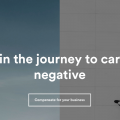
 A new destructive business: Carbon credits from tree plantations
A new destructive business: Carbon credits from tree plantations
 East Africa poised to monitor carbon emission
East Africa poised to monitor carbon emission
 The Rush for Carbon Concessions: More Land Theft and Deforestation
The Rush for Carbon Concessions: More Land Theft and Deforestation
 Uganda: Local communities claim they are not benefiting from Green Resources’ subsidiary’s carbon credit initiative; incl. company’s comments
Uganda: Local communities claim they are not benefiting from Green Resources’ subsidiary’s carbon credit initiative; incl. company’s comments
You may like
SPECIAL REPORTS AND PROJECTS
‘Food and fossil fuel production causing $5bn of environmental damage an hour’
Published
1 month agoon
December 22, 2025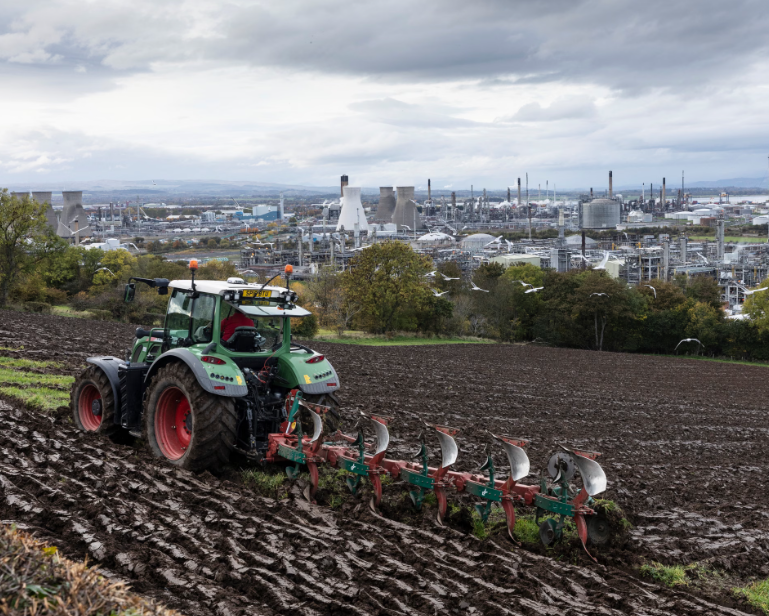
UN GEO report says ending this harm key to global transformation required ‘before collapse becomes inevitable’.
Related posts:

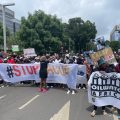 Activists storm TotalEnergies’ office ahead of G20 Summit, demand end to fossil fuel expansion in Africa
Activists storm TotalEnergies’ office ahead of G20 Summit, demand end to fossil fuel expansion in Africa
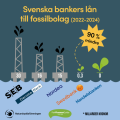 New billion-dollar loans to fossil fuel companies from SEB, Nordea and Danske Bank.
New billion-dollar loans to fossil fuel companies from SEB, Nordea and Danske Bank.
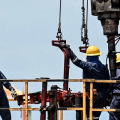 Fossil fuel opponents lobby Africans for support
Fossil fuel opponents lobby Africans for support
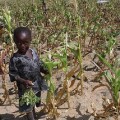 Ecological land grab: food vs fuel vs forests
Ecological land grab: food vs fuel vs forests
SPECIAL REPORTS AND PROJECTS
Britain, Netherlands withdraw $2.2 billion backing for Total-led Mozambique LNG
Published
2 months agoon
December 17, 2025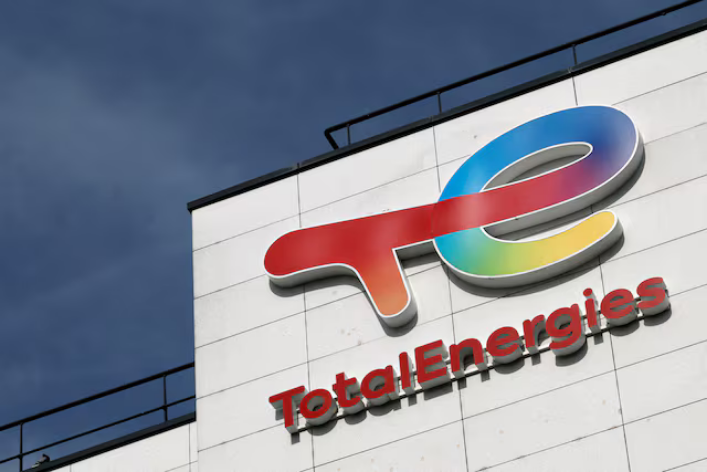
CONSTRUCTION HALTED IN 2021, BUT DUE TO RESTART
PROJECT CAN PROCEED WITHOUT UK, DUTCH FINANCING, TOTAL HAS SAID
CRITICISM FROM ENVIRONMENTAL, HUMAN RIGHTS GROUPS
Related posts:

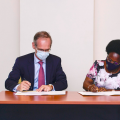 Uganda, Total sign crude oil pipeline deal
Uganda, Total sign crude oil pipeline deal
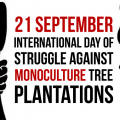 Witness Radio – Uganda, Community members from Mozambique and other organizations around the world say NO to more industrial tree plantations
Witness Radio – Uganda, Community members from Mozambique and other organizations around the world say NO to more industrial tree plantations
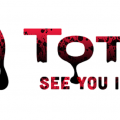 NGOs file suit against Total over Uganda oil project
NGOs file suit against Total over Uganda oil project
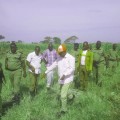 Agribusiness Company with financial support from UK, US and Netherlands is dispossessing thousands.
Agribusiness Company with financial support from UK, US and Netherlands is dispossessing thousands.
SPECIAL REPORTS AND PROJECTS
The secretive cabal of US polluters that is rewriting the EU’s human rights and climate law
Published
2 months agoon
December 5, 2025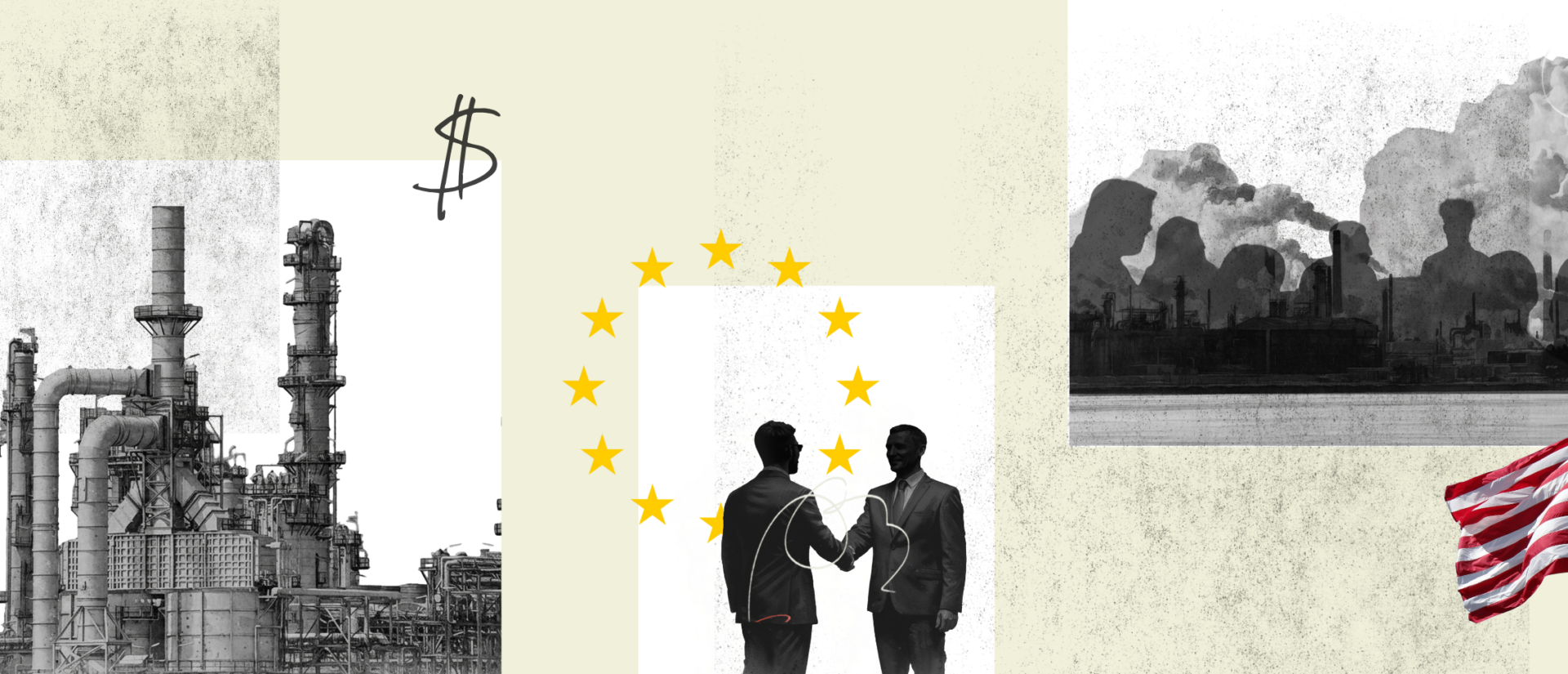
Leaked documents reveal how a secretive alliance of eleven large multinational enterprises has worked to tear down the EU’s flagship human rights and climate law, the Corporate Sustainability Due Diligence Directive (CSDDD). The mostly US-based coalition, which calls itself the Competitiveness Roundtable, has targeted all EU institutions, governments in Europe’s capitals, as well as the Trump administration and other non-EU governments to serve its own interests. With European lawmakers soon moving ahead to completely dilute the CSDDD at the expense of human rights and the climate, this research exposes the fragility of Europe’s democracy.
Key findings
- Leaked documents reveal how a secretive alliance of eleven companies, including Chevron, ExxonMobil, and Koch, Inc., has worked under the guise of a “Competitiveness Roundtable” to get the Corporate Sustainability Due Diligence Directive (CSDDD) either scrapped or massively diluted.
- The companies, most of which are headquartered in the US and operate in the fossil fuel sector, aimed to “divide and conquer in the Council”, sideline “stubborn” European Commission departments, and push the European People’s Party (EPP) in the European Parliament “to side with the right-wing parties as much as possible”.
- Chevron and ExxonMobil were in charge of mobilising pressure against the CSDDD from non-EU countries. The Roundtable companies endeavoured to get the CSDDD high on the agenda of the US-EU trade negotiations and also worked on mobilising other countries against the CSDDD, in order to disguise the US influence.
- Roundtable companies paid the TEHA Group – a think tank – to write a research report and organise an event on EU competitiveness, which echoed the Roundtable’s position and cast doubt on the European Commission’s assessment of the economic impact of the CSDDD.
While Europeans were told that their governments were negotiating a landmark law to hold corporations accountable for human rights abuses and climate damage, a secretive alliance of US fossil fuel giants was working behind the scenes to destroy it. Collaborating under the innocent-sounding name ‘Competitiveness Roundtable’, eleven multinational enterprises have worked closely to eviscerate several EU sustainability laws, including the Corporate Sustainability Due Diligence Directive (CSDDD) and the Corporate Sustainability Reporting Directive (CSRD). This Competitiveness Roundtable may be unknown, but its members are a who’s-who of polluting, mainly US, multinationals, including Chevron, ExxonMobil, and Dow. The group seems to have run rings around all branches of the EU and the Trump administration to get what they want: scrapping, or at least hugely diluting, the CSDDD.
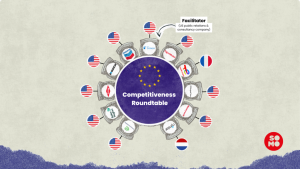
Leaked documents obtained by SOMO reveal how, under the pretext of the now-near-magical concept of ‘competitiveness’, these companies plotted to hijack democratically adopted EU laws and strip them of all meaningful provisions, including those on climate transition plans, civil liability, and the scope of supply chains. EU officials appear not to have known who they were up against. But the documents obtained by SOMO show a high level of organisation and strategising with a clear facilitator: Teneo, a US public relations and consultancy company.
The documents indicate that many of the companies involved wanted to stay hidden from view. After all, if it were widely known that a secretive group of mostly American fossil fuel companies like Chevron, ExxonMobil, and Koch, Inc. was working as a coordinated organisation to dilute an EU climate and human rights law, that might raise questions and serious concern among the public and the policymakers they were targeting. Many of the companies in the Roundtable have never publicly spoken out against the CSDDD.
Big Oil’s ‘Competitiveness Roundtable’
The Competitiveness Roundtable is dominated by fossil fuel companies, including three Big Oil companies (ExxonMobil, Chevron, TotalEnergies) and three other companies with activities in the oil and gas sector (Koch, Inc., Honeywell, and Baker Hughes). Other members are Nyrstar (minerals and metals, a subsidiary of Trafigura Group); Dow, Inc. (chemicals); Enterprise Mobility (car rentals); and JPMorgan Chase (finance).
Teneo, the Roundtable’s coordinator, has a track record(opens in new window) of working with fossil fuel companies, including Chevron, Shell, and Trafigura, and was hired by the government of Azerbaijan to handle public relations(opens in new window) when it hosted the COP29 climate conference.
In February 2025, the European Commission published the Omnibus I proposal(opens in new window), which aims to “simplify” several EU sustainability laws, including the CSDDD. The documents obtained by SOMO reveal that the Roundtable companies, which have been meeting weekly since at least March 2025, worked on deep interventions within each of the three EU institutions to get the Omnibus I package to align exactly with their views. The EU institutions are expected to reach a final agreement on Omnibus I by the end of 2025.
The documents reveal that the Roundtable companies’ activities in the Parliament are far more significant than what is visible in the EU Transparency Register(opens in new window). Eight of the Roundtable’s lobbying meetings during the Strasbourg plenary sessions of May and June 2025, listed in the Transparency Register, show Teneo as the only attendee, thereby failing to disclose the names of other Roundtable companies that participated in these meetings. Another three meetings the Roundtable held were not found in the EU Transparency Register(opens in new window) at all.
“Divide and conquer” the Council
In the European Council, the Roundtable plotted to “divide and conquer” EU governments to get the climate article in the CSDDD deleted. In June 2025, during the final weeks of negotiations in the Council on the Omnibus I proposal, the Roundtable discussed lobbying EU government leaders to “intervene politically” to ensure its priorities were included in the Council’s negotiation mandate. Subsequently, German Chancellor Merz and French President Macron reportedly(opens in new window) personally intervened(opens in new window) in the Council’s political process, leading to a dramatic dilution(opens in new window) of the texts(opens in new window) negotiated in the months before the intervention. Several of the changes made to the texts strongly align with the Roundtable’s demands, including delaying and substantially weakening the climate obligations, scrapping EU civil liability provisions, and limiting the responsibility of companies to take responsibility for their supply chains (the ‘Tier 1’ restriction).

Competitiveness Roundtable meeting document, 11 July 2025.
Additionally, the documents reveal that the Roundtable is still aiming to drum up a “blocking minority” to overturn the Council’s negotiation mandate during the trilogue negotiations, which started in November 2025. By “tak[ing] advantage of the ‘weak’ Council negotiating mandate” and disagreements between EU Member States on “contentious articles”, the Competitiveness Roundtable companies hope to force the Danish Council presidency to give up on including any form of climate obligations in the CSDDD – despite EU Member States’ agreement on this in the June 2025 Council mandate(opens in new window) .
To implement the divide-and-conquer strategy, the Roundtable assigned specific companies to “establish rapporteurships” with different EU governments. TotalEnergies would target the French, Belgian, and Danish governments, and ExxonMobil would target Germany, Hungary, the Czech Republic, and Romania.
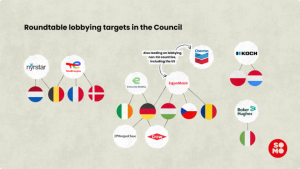
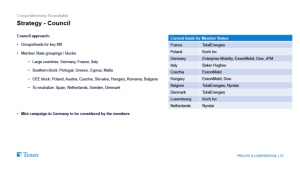
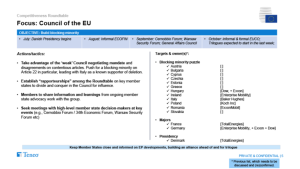
Circumventing “stubborn” European Commission departments
The Roundtable also discussed working on “circumvent[ing]” two “stubborn” European Commission departments involved in the Omnibus political process, DG JUST and DG FISMA, which, in their view, were “unlikely to be willing to see our side of the story”. According to the documents, DG JUST opposed deleting the climate article and restricting the Directive’s scope to only very large enterprises. The Roundtable aimed to diminish the role of these departments by pressuring President Von der Leyen and Commissioners McGrath (DG JUST) and Albuquerque (DG FISMA) by “organising letters from Irish and German business groups” and using an event held by the European Roundtable for Industry to “target” Von der Leyen and McGrath.
Read full report: Somo.nl
Source: Somo
Related posts:

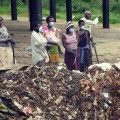 Victims of human rights violations in Uganda still waiting for redress
Victims of human rights violations in Uganda still waiting for redress
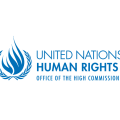 UN Human Rights Chief urges EU leaders to approve key business and human rights legislation
UN Human Rights Chief urges EU leaders to approve key business and human rights legislation
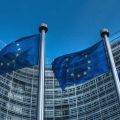 Business, UN, Govt & Civil Society urge EU to protect sustainability due diligence framework
Business, UN, Govt & Civil Society urge EU to protect sustainability due diligence framework
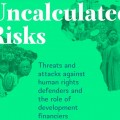 Development financiers fuel human rights abuses – New Report
Development financiers fuel human rights abuses – New Report

Why govt is launching a comprehensive digital land registry

Witness Radio and Seed Savers Network are partnering to produce radio content to save indigenous seeds in Africa.

Evicted from their land to host Refugees: A case of Uganda’s Kyangwali refugee settlement expansion, which left host communities landless.

Women environmental rights defenders in Africa are at the most significant risk of threats and attacks – ALLIED New report

Will Uganda’s next government break the land-grabbing cycle?

Women environmental rights defenders in Africa are at the most significant risk of threats and attacks – ALLIED New report

Swedish pension fund drops TotalEnergies amid rising EACOP risks

Land tenure security as an electoral issue: Museveni warns Kayunga land grabbers, reaffirms protection of sitting tenants.

Innovative Finance from Canada projects positive impact on local communities.
Over 5000 Indigenous Communities evicted in Kiryandongo District
Petition To Land Inquiry Commission Over Human Rights In Kiryandongo District
Invisible victims of Uganda Land Grabs
Resource Center
- Land And Environment Rights In Uganda Experiences From Karamoja And Mid Western Sub Regions
- REPARATORY AND CLIMATE JUSTICE MUST BE AT THE CORE OF COP30, SAY GLOBAL LEADERS AND MOVEMENTS
- LAND GRABS AT GUNPOINT REPORT IN KIRYANDONGO DISTRICT
- THOSE OIL LIARS! THEY DESTROYED MY BUSINESS!
- RESEARCH BRIEF -TOURISM POTENTIAL OF GREATER MASAKA -MARCH 2025
- The Mouila Declaration of the Informal Alliance against the Expansion of Industrial Monocultures
- FORCED LAND EVICTIONS IN UGANDA TRENDS RIGHTS OF DEFENDERS IMPACT AND CALL FOR ACTION
- 12 KEY DEMANDS FROM CSOS TO WORLD LEADERS AT THE OPENING OF COP16 IN SAUDI ARABIA
Legal Framework
READ BY CATEGORY
Newsletter
Trending
-

 MEDIA FOR CHANGE NETWORK1 week ago
MEDIA FOR CHANGE NETWORK1 week agoWomen environmental rights defenders in Africa are at the most significant risk of threats and attacks – ALLIED New report
-

 MEDIA FOR CHANGE NETWORK2 weeks ago
MEDIA FOR CHANGE NETWORK2 weeks agoUganda moves toward a Bamboo Policy to boost environmental conservation and green growth.
-

 FARM NEWS1 week ago
FARM NEWS1 week ago200 farmers demonstrate at parliament, worried about new seed monopoly
-

 MEDIA FOR CHANGE NETWORK4 days ago
MEDIA FOR CHANGE NETWORK4 days agoEvicted from their land to host Refugees: A case of Uganda’s Kyangwali refugee settlement expansion, which left host communities landless.
-

 MEDIA FOR CHANGE NETWORK4 days ago
MEDIA FOR CHANGE NETWORK4 days agoWitness Radio and Seed Savers Network are partnering to produce radio content to save indigenous seeds in Africa.
-

 MEDIA FOR CHANGE NETWORK1 day ago
MEDIA FOR CHANGE NETWORK1 day agoWhy govt is launching a comprehensive digital land registry

